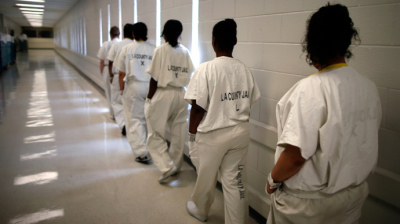5 things to know about the evangelical-based prison reform bill FIRST STEP Act

2. Not all inmates are eligible for time credits
Although the bill would create an earned time credit system for inmates to work toward an early secured release, the bill lists about 50 offenses and convictions that would disqualify inmates from being able to earn the credit.
While the 50 disqualifying offenses listed by the bill include a number of violent crimes and trafficking offenses, it did not list enough crimes to Cotton’s liking.
Cotton claims that under the bill, criminals convicted for drug-related robberies involving assault with dangerous weapons, assaulting police officers with a deadly weapon, assaulting a spouse or child resulting in bodily injury, violent carjacking or heroine and fentanyl trafficking would be eligible for earned time credits.
Although the bill doesn’t specifically list those crimes as disqualifying inmates from being able to earn time credits, the bill does require wardens and federal prison facilities to determine if the remaining inmates who have not been disqualified by the language in the bill are “minimum or low” recidivism risks.
“Time credits earned under this paragraph by prisoners who successfully participate in recidivism reduction programs or productive activities and who have been determined to be at minimum risk or low risk for recidivating pursuant to their last two reassessments shall be applied toward time in pre-release custody,” the bill reads.
According to Lee, those determinations would have to be made through “data-based standards developed by the attorney general and the independent commission,” Lee explained.
“Senator Cotton contends that the bill will allow dangerous criminals to win early release. As explained above, the bill categorically excludes offenders convicted of certain crimes and provides that all other offenders are eligible to earn credits only if they are deemed a minimum or low recidivism risk,” Lee explained. “Cotton dislikes this system because it reflects too much ‘faith that government bureaucrats can judge the state of a felon’s soul’ and is subject to manipulation by a future Democratic president.”
Lee stressed that legislation doesn’t call on “government bureaucrats” to judge the inmates but rather calls on law enforcement officers to make those determinations, something, Lee says, that they do “daily.”
Lee contended that similar risk assessment programs have already been implemented in states like Texas and Georgia.
“[A]nd these states are hardly the post-apocalyptic criminal hellscapes that Cotton predicts such a system would cause,” Lee stated.



























